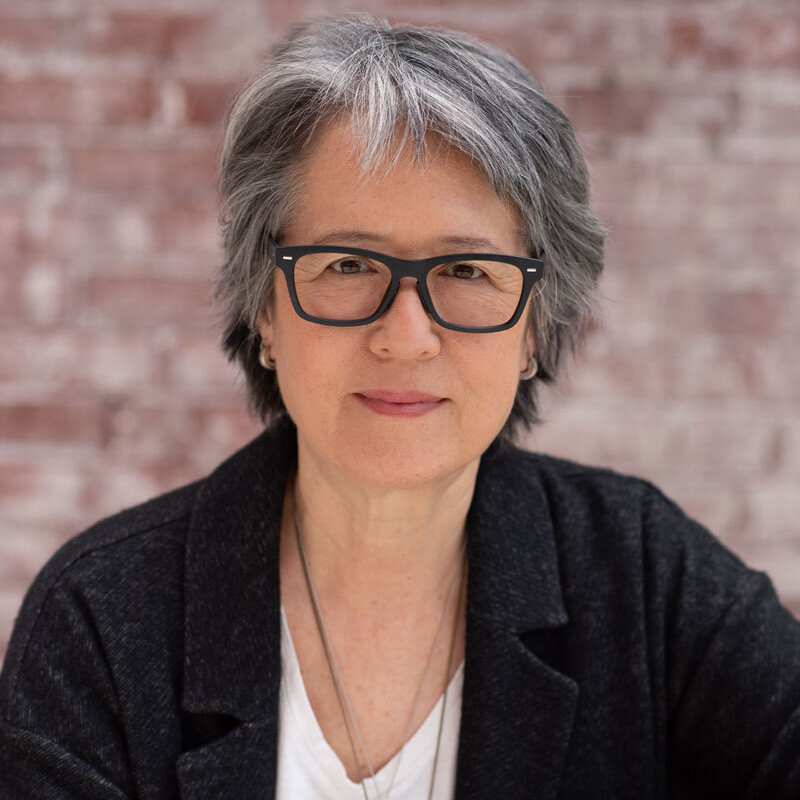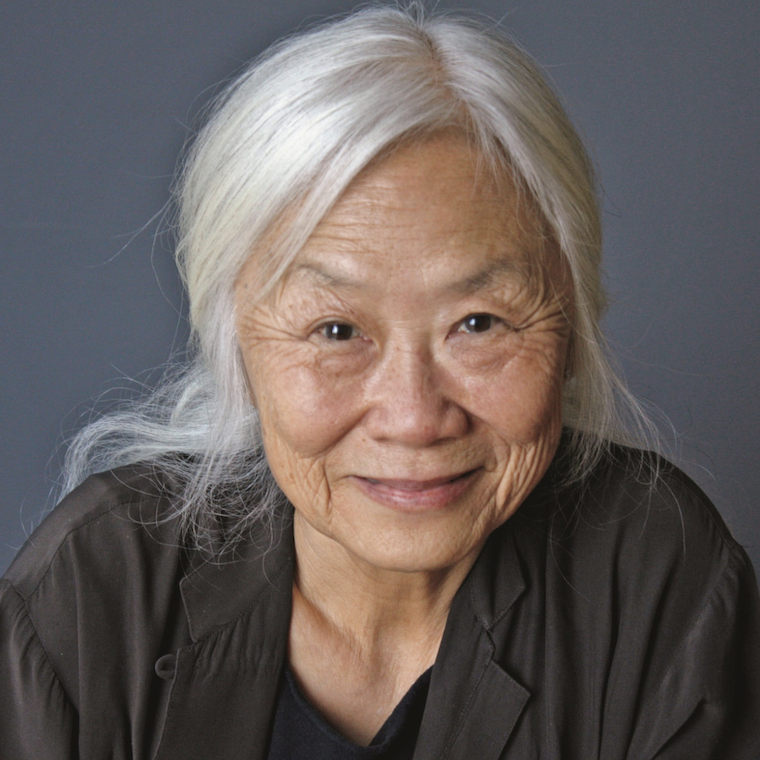Ruth Ozeki. Photo: Danielle Tait. Ruth Ozeki has won the 2022 Women’s Prize for Fiction for her novel The Book of Form and Emptiness. The Women’s Prize also hosts a podcast where you can listen to author interviews, get book recommendations, and more. The Drift is throwing an issue-release party tonight at the Public Hotel in New York City. For Vulture, Andrea Long Chu reviews Ottessa Moshfegh’s new novel, Lapvona, which is set in a medieval village. Chu writes of Moshfegh, who likes to revel in degradation and filth in her work, “These days, the leading coprophage of American
Megha Majumdar. Photo: © Elena Seibert The Washington Post’s Jeremy Barr interviews Joe Kahn, the new executive editor of the New York Times. Kahn doesn’t seem poised to make major changes at the paper, but shares former editor Dean Baquet’s belief that journalists should de-prioritize Twitter. In the new issue of The Drift, Jake Bitte writes about Naomi Klein’s 2014 book This Changes Everything, greenwashing, and speculates about the future of green capitalism: “The world economy will cross the canyon on the tightrope of profit—instead of a Green New Deal, we will get a green Art of the Deal.” Bittle
Tonight, join us as we host the first episode of our new video series, “Off the Page,” featuring Margo Jefferson and Blair McClendon live in conversation. The virtual event is free if you RSVP here. Reviewing Jefferson’s new memoir, Constructing a Nervous System, for the spring issue of Bookforum, McClendon notes that for this book, Jefferson tried a new conception of autobiography: “Rather than using her life’s narrative to structure the book, she organizes her becoming through her models. Who, she asks herself, were those people she secreted away? In whose eyes did she see herself reflected?” Pantheon Books
Duncan Hannah Duncan Hannah—a deeply literary artist and the author of the memoir 20th-Century Boy—has died. Lisa Lucas of Pantheon has acquired the new novel by Justin Taylor. Reboot is about a former child actor who is “charged with kissing the appropriate rings to in order to reboot the cult TV teen soap that made him famous, only to be pulled into a national scandal where the show itself becomes a flashpoint for the culture wars.” Critic Laura Miller has won the Kukula Award for Excellence in Nonfiction Book Reviewing for her Slate essay about rereading Alice Sebold’s memoir
Pankaj Mishra The editors of The Drift interview Pankaj Mishra about the mainstream media’s response to Russia’s invasion of Ukraine, the West’s lack of historical memory, de-Americanization, and the collapse of American ideology abroad. “A lot of what we’re seeing today, whether it’s Modi’s Hindu chauvinism, Chinese supremacism, or Russian imperialism, is an attempt to resurrect or recreate or forward some kind of ‘indigenous’ ideology,” Mishra notes. “Because there’s a big vacuum there, left by a catastrophic loss of faith in America.” National political reporter Felicia Sonmez has been fired from the Washington Post following a conflict over newsroom
Sloane Crosley. Photo: Beowulf Sheehan At Interview magazine, Sloane Crosley talks about her new novel, Cult Classic, with Lauren Oyler. Describing one of the book’s characters, Crosley notes, “We’re all victims of too much self-analysis, and we can collapse under the weight of the perfect decision, which is something that happens to her.” For Vanity Fair, Charlotte Klein details the turmoil at the Washington Post, as internal disputes spilled out onto Twitter, a high-profile reporter was suspended, another journalist called out the paper’s sexism and lack of accountability, and star writer Taylor Lorenz publicly blamed a “miscommunication with an
Solmaz Sharif. Photo: Emma Larson/The Shipman Agency Rozina Ali profiles the Iranian American poet Solmaz Sharif, author of the collections Look and Customs, for Lux magazine. “One of the oft-repeated misconceptions of Sharif as a political poet is that she is not as concerned about aesthetics as she is about the message,” Ali writes. “She rejects this. For Sharif, language and liberation are tied, but if that was all there was to her work, she told me, she would have been an orator.” Words Without Borders has launched their redesigned and reconceived website, with contributions from Jhumpa Lahiri, Michael
Anne Carson. Photo: Peter Smith. The summer issue of the Yale Review is out now, with Becca Rothfeld on the merits of high-school debate tournaments, Sarah Chihaya on reading Anne Carson after a breakup, and Terrance Hayes’s review of poet Tim Seibles (told in the form of a board game), and much more. The New York Public Library is accepting applications for the 2023–2024 Cullman Center Fellowship. At Gawker, Leah Finnegan covers the Twitter infighting at the Washington Post. Finnegan writes, “It’s funny how legacy papers can’t figure out their stance on social media. Their indecisiveness creates a culture
Arinze Ifeakandu. Photo: Bec Stupak Diop “What or who inspired you to start writing?” Jessica Swoboda asks Tobi Haslett in an interview published by The Point. Haslett responds: “Impossible question, in part because I’m one of those people who always wanted to be a writer. But I may or may not be freakish in that I can recall the specific moment when I decided that actually going for it might not be a complete waste of time. The spring I graduated from college, n+1 published an essay called ‘Cultural Revolution.’ It was a manifesto, or at least I read
Maxine Hong Kingston. Photo: Michael Lionstar/Penguin Random House On Monday, June 13, Maxine Hong Kingston will be joined in an online conversation by Gish Jen, author of The Resisters, at 92Y to celebrate the publication of a Library of America edition of Kingston’s books The Woman Warrior, Tripmaster Monkey, China Men, and other collected writings. For the New York Review of Books, doctor and poet Laura Kolbe considers three new books that explore pain’s origins and how we attempt to explain and quantify pain: “Our appetite for explanation is large, because most of us have at some point deeply
Haley Mlotek For Columbia Journalism Review, Haley Mlotek considers a new biography of Anna Wintour, and speaks with its author, Amy Odell. Anna: The Biography is a deeply-researched unauthorized account of theVogue editor’s decades-long reign of the fashion world. Mlotek writes, “By a few measures, she may be considered the ‘final’ boss. Yet as her influence has grown, so has the imperative for substantial critique and for reckoning with what her power means.” The Washington Monthly magazine has announced the finalists of its Kukula Award for Excellence in Nonfiction Book Reviewing. Among the ten finalists are Becca Rothfeld for her
Walter Abish. Photo: New Directions Walter Abish, the experimental novelist, poet, and author of the acclaimed 1980 novel How German Is It, has died at the age of ninety. “My work invites interpretation,” Abish said in 2004. “To provide explanations is to inhibit the reader’s interaction. Often to explain is to explain away.” In an essay for Criterion, Angelica Jade Bastién writes about Billy Wilder’s 1994 film Double Indemnity, the power of the femme fatale, and “the suggestion of the racialized other” in noir films. For more on Wilder, see A. S. Hamrah’s essay on his life and work
Sarah Jaffe. Photo: Janice Checchio. Sarah Jaffe writes about photographer Vivian Maier for The Nation. Reviewing a new biographer of Maier, Jaffe observes that the author, like many Maier scholars before her, doesn’t know what to make of the photographer’s lack of careerism and her day job as a nanny: The “book still treats Maier’s life and art as a riddle to be solved rather than as the complicated and contradictory products of a formidable intellect.” The new issue of Bookforum is online now! In a special summer section, we asked writers to contribute essays, reviews, and reflections on
Phil Klay. Photo: Hannah Dunphy Geetanjali Shree and translator Daisy Rockwell have won the International Booker Prize for Translated Fiction for Tomb of Sand. It is the first novel originally written in Hindi to win the prize. At BOMB, Mark Haber discusseses his new novel Saint Sebastian’s Abyss with Ryan Chapman. Haber’s novel follows two art critics and former best friends who meet after a long falling out. The author tells Chapman about his attraction to the idea of “absolute knowledge”: “Having characters fixate on something as small as a tiny canvas painting, making it the guidepost of their
Francis Fukuyama For the New Yorker, Krithika Varagur reviews Francis Fukuyama’s Liberalism and Its Discontents, the political scientist’s defensive revisiting of the influential ideas he proposed in his 1989 essay (and later, book) “The End of History.” Varagur writes, “Liberalism could scarcely imagine a better cheerleader in this bleak landscape than Fukuyama, who has a unique skill for imbuing a sometimes ponderous ideology with a narrative thrust.” For the latest episode of the Artforum/Bookforum video series “Artists On Writers | Writers On Artists,” Elif Batuman talks about her new novel, Either/Or, with artist Sibel Horada. Jane Hu writes for
Brandon Taylor. Photo: Brandon Taylor At the Columbia Journalism Review, Jon Allsop rounds up and reflects on media coverage of the school shooting yesterday in Uvalde, Texas, and “all the horribly repetitive cadences” of the responses to the tragedy. Yesterday at Politico, Chris Suellentrop described mass shootings as “America’s copy and paste tragedy.” Allsop argues that “this repetition need not hamstring coverage; it can be grimly illustrative and, if framed correctly, even galvanizing.” Critic Jasmine Sanders will be leading a reading group at the Center for Fiction on Margo Jefferson’s new memoir Constructing a Nervous System and Willa Cather’s Künstlerroman The Song of the
Elif Batuman. Photo: Valentyn Kuzan. At the New Republic, Sophie Haigney writes about Elif Batuman’s new novel, Either/Or: “One of Batuman’s abiding preoccupations is how literature intersects with life. She has expressed a general preference for nonfiction over contemporary fiction, for its ability to engage with reality.” At LitHub, Batuman talks about writing the book and the process of looking back at her college-age self: “When I look back at that time, it would be easy to say, oh, the wool was really pulled over my eyes and I was really tricked and I really fell for something and
Adrian Matejka Rowan Ricardo Phillips interviews Adrian Matejka, who was recently named the editor of Poetry, becoming the first Black person to hold the position in the magazine’s history. Matejka, whose books include Somebody Else Sold the World, shares his vision for the publication, saying that he wants to “make the magazine more inclusive and available while also developing its outward-facing component.” He continues: “I’m a believer in poetry as action as well as art. Some of my favorite poets do their best work in libraries and orchards and jazz clubs. I want the magazine to embody that public
Elaine Hsieh Chou. Photo: © Cindy Trinh For Liberties, Morton Høi Jensen reflects on what we expect from biographies, the “biographical fallacy,” and works of fiction that lean on biographical information. “All writers lead double lives: one on the page, one off,” Jensen writes. “And no account or portrait of a writer’s life will resolve this fissure. There will always be a scandalizing disproportion between the human messiness of a writer’s life and the size, the scope, and the opacity of their fictional work.” For the New York Times, Marc Tracy outlines how liberal cultural arbiters are responsible for
Olúfẹ́mi O. Táíwò. Photo: Jared Rodriguez. For the London Review of Books, Hazel V. Carby compares Nikole Hannah-Jones’s The 1619 Project to a new HBO series directed by Raoul Peck, Exterminate All the Brutes, and reflects on the limited usefulness of the phrase “the afterlife of slavery” and the term “antiblackness” when used without historical specificity. Carby writes that The 1619 Project’s aim “places it firmly within the conventional narrative of American exceptionalism,” while Peck’s series “refuses to conform to narrative linearity, rejecting the idea that the current resurgence of white supremacist and state violence can be traced back



















